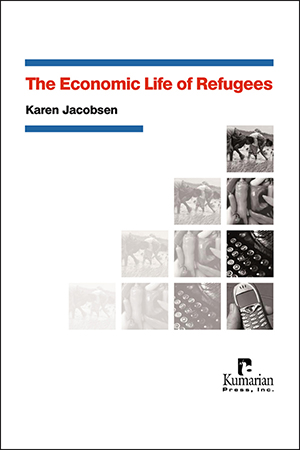What happens to refugees, the victims of forced migration, once the first rush of media attention and aid has passed and they must rebuild their lives essentially on their own? Karen Jacobsen explores the economic survival strategies of refugees, and the obstacles that they face, as they live in a protracted state of displacement. She also proposes alternative approaches for humanitarian agencies seeking to offer meaningful support.
Karen Jacobsen is associate professor of research at the Fletcher School, Tufts University, and also director of the Forced Migration Program at the university's Feinstein International Center.
"Provides [both] a vivid analysis of the way that refugees seek to construct new livelihoods in exile and some valuable recommendations with regard to the way that humanitarian and development agencies could support those efforts more effectively."—Jeff Crisp, Global Commission on International Migration
"Presents a compelling picture of the refugee as an economic actor, willing and often eager to wean herself from international assistance, but hampered from doing so by aid policies that thwart self-reliance. Jacobsen presents a model to overcome these barriers and case studies showing just how they can be implemented."—Susan F. Martin, Georgetown University
"Jacobsen opens up the policy debate beyond protection and resettlement to address the value of economic participation in the local economy of host nations. This book is an important contribution to a needed rethinking of policies around the globe."—Westy A. Wegmont, International Institute of Boston






